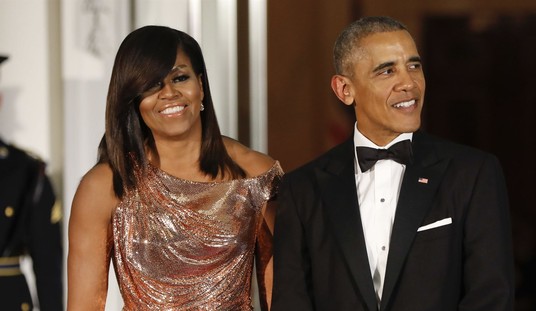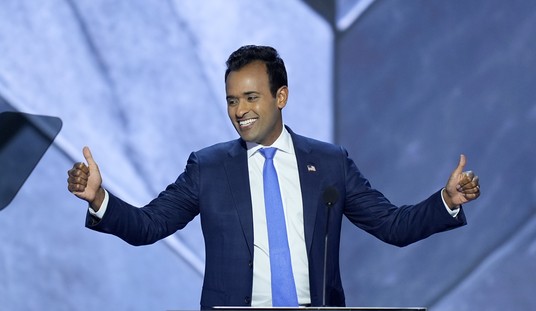Every year since 1995, the Heritage Foundation has published an Index of Economic Freedom that ranks every country in the world by how free their economy is.
According to the Wall Street Journal, “The index measures commitment to free enterprise on a scale of 0 to 100 by evaluating policies related to the rule of law, government size, regulatory efficiency and market openness.”
The US ranking has been dropping since 2005, when we stood at #5 in the rankings and our score was high enough that we were designated a “free” economy. Since then — and especially in the 5 years of the Obama administration, the US has tumbled out of the top ten and our overall score has us designated as a “mostly free” economy. Our current ranking is 12th — same as it was last year.
This year, we saw a slight uptick in 7 of 10 indices, making this the first year since 2009 we haven’t lost any ground in economic freedom.
Although the precipitous downward spiral in U.S. economic freedom since 2008 has come to a halt in the 2015 Index, a 1.6-point decline in overall economic freedom over the past five years reflects broad-based deteriorations in key policy areas, particularly those related to upholding the rule of law and limited government. Continuing to trail such comparable economies as Australia, New Zealand, Switzerland, and Canada, America has been ranked “mostly free” since 2010.
The anemic post-recession recovery has been characterized by slow growth, high unemployment, a decrease in the number of Americans seeking work, and great uncertainty that has held back investment. Increased tax and regulatory burdens, aggravated by favoritism toward entrenched interests, have undercut America’s historically dynamic entrepreneurial growth.
Part of the reason for the slight rise in our numbers is attributed by Heritage to the Republican Congress:
President Barack Obama’s second-term efforts to expand government spending and regulation have been thwarted to some extent by Republican Party opposition in Congress. Economic policy leadership has devolved by default to the Federal Reserve, whose attempts to use monetary policy to stimulate economic activity have not restored robust growth. Implementation of the 2010 health care law, which has reduced competition in most health insurance markets, remains a drag on job creation and full-time employment. Overall, the U.S. economy continues to underperform, despite a private sector–led energy boom that has made the U.S. the world’s largest producer of oil and natural gas. The weak economic recovery and uncertain responses to foreign policy challenges, particularly in the Middle East, in Ukraine, and along the southern U.S. border, have contributed to a loss of support for the President and his party and Republican majorities in both chambers of Congress as a result of 2014 midterm elections.
Compare the “Limited Government” index between the US and Hong Kong, who is ranked #1 in economic freedom:
The top individual income tax rate is 39.6 percent, and the top corporate tax rate remains among the world’s highest at 35 percent. Other taxes include a capital gains tax and excise taxes. Tax revenue is equal to 24.3 percent of gross domestic product, and government spending is well over one-third of GDP. Public debt exceeds the value of the economy’s annual production.
Hong Kong, on the other hand, has a low personal and business tax rates:
The standard income tax rate is 15 percent, and the top corporate tax rate is 16.5 percent. The overall tax burden equals 13.7 percent of domestic income. Government expenditures amount to 18.5 percent of gross domestic product. Public debt is low, and a budget surplus has been maintained, but population aging and greater spending on social programs have increased fiscal pressures.
Here are the top ten most free and least free countries according to the Index:
MOST FREE
1, Hong Kong
2. Singapore
3. New Zealand
4. Australia
5. Switzerland
6. Canada
7. Chile
8. Estonia
9. Ireland
10. Mauritius
LEAST FREE
178. North Korea
177. Cuba
176. Venezuela
176. Zimbabwe
174. Eritrea
173. Equatorial Guinea
172. Turkmenistan
171. Iran
170. Republic of Congo
169. Argentina
Note the countries ahead of the US, including Estonia (?), Chile, Switzerland, and #11 Denmark. When democratic socialist peoples like the Swiss and Danes are freer economically than the US, you know something is radically out of kilter.
The rankings are a useful guide to approximating economic freedom. But there is not always a strong correlation between economic liberty and personal liberty. Hong Kong and Singapore are considered “partly free” by the Freedom House “Freedom in the World” rankings, with restrictions on the press and some draconian laws, like receiving lashes in Singapore for spitting.
Heritage points out that there have been 145 major regulations issued by the Obama administration, adding $70 billion to the economy’s regulatory tab — burdening business, reducing job creation, and slowing growth. It appears business growth will continue to be stifled until President Obama exits his office – two long years from now.










Join the conversation as a VIP Member